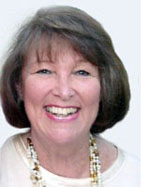
By Cynthia Citron

HOLLYWOOD — If you were to guess Sarah Treem’s age by her looks alone, you’d probably say, “Not a day over 21.”
If you were to guess her age by the quantity and quality of her output and accomplishments, you’d probably say, “Forty-one. Maybe even 51.”
What does Sarah Treem say? “I’m the happiest 31-year-old on the planet!” And why is she so happy?
If you were very observant, you might remember seeing her credits scroll down at the end of the smash HBO series In Treatment. Already a successful playwright, this was Treem’s first television assignment; she served aswriter/producer during all three seasons of the brilliant psychotherapy
sessions that mesmerized viewers from coast to coast. “But only on the coasts,” she says ruefully. “The middle of the country didn’t watch it.”
But good news for us Californians! Treem says In Treatment may be coming back for a fourth season.
Meanwhile, she is keeping busy helping to put together another series, House of Cards, which will star Kevin Spacey and Robin Wright. Spacey will executive produce as well as act, and will team up again with David Fincher, who directed him previously in Se7en and also directed The Social Network, which Spacey
executive produced.
House of Cards is based on the 1990 British political thriller series from the BBC (and the best-selling book by Michael Dobbs), set in the time of Margaret Thatcher’s government. The new adaptation will bring the action to America and will feature the American political scene. But the unique element of this series, set to begin in 2012, is that it will be the first “original content” series produced and streamed on Netflix, rather than being released on
a traditional television network.
Treem herself has just come back from a field trip to Washington, D.C., with Spacey and the other principals. “We were all sitting on the Senate floor during the debt crisis discussions,” she says. “I kept wondering ‘How is this my job?!”
Back in California again, she is hard at work preparing for the workshop performance of her newest play, When We Were Young and Unafraid, at the 14th Annual Ojai Playwrights Conference. This new play, which will be presented on Sunday, August 14th, is set in a bed and breakfast located off the coast of Seattle which also serves as a shelter for battered women. The mother/proprietor takes in a mysterious visitor who’s on the run from an abusive relationship and the mother watches as the self-destructive visitor begins to influence her brilliant daughter. As the press release puts it, “The play explores the true cost of desire and dependence, and what it means to be a victim.”
Treem has an ongoing relationship with the Ojai Conference and its Summer New Works Festival, which she considers “the best” of the venues that showcase new works. “They really believe in the work,” she says, “and they take on ‘message plays’ and plays with political themes.” Two years ago she was writer-in-residence at Ojai and now she is an associate on its artistic board. “And this year they asked me to submit a play to the Festival,” she says with a happy smile
Born in Boston, Treem grew up in a Jewish family in New Hampshire, Philadelphia, Washington D.C., Connecticut, and North Carolina, but she considers Connecticut her home base since she spent the most time there (eight years) getting her undergraduate degree and MFA at Yale, and then going on to teach playwriting there. She was a student at the same time as playwright Itamar Moses, who became a close friend and one of the few people she sends her new plays to for vetting.
The other people she looks to for advice include her father, a pediatric gastroenterologist, and her mother, a consultant to a foundation that deals with intellectual property rights. Both of them, she says, are “really invested in my career.”
She was, she says, a happy kid, never growing up with anxiety or depression, but as an adult she began having panic attacks. A firm believer in the mind-body connection, she began to see a therapist. “As an artist, you need to tap into your anxieties—the things that haunt you—and then dramatize them,” she says.
“The problem with therapy for me was that I was working on In Treatment at the time, and I kept rewriting my therapist’s comments in my head and being annoyed that she was deflating all the tension out of the scene.”
As an aside, she notes that Gabriel Byrne, who starred as the therapist in the series, is “a genius. An incredibly well-read man and a once-in-a-generation actor,” she says. “He portrays a man who listens. But in the midst of a speech he would suddenly break into a quotation from Kierkegaard and I would have to say, ‘Gabe, you just can’t alienate the viewers by breaking into a quote from Kierkegaard!’”
Treem went on to win a WGA Award for In Treatment, a nomination for a Humanitas Award, and a new gig as a writer/producer for the Mark Wahlberg/Stephen Levinson HBO series How to Make It In America.
She also taught disabled vets at a program in Maine run by the Jesuits, saw her play Orphan Island submitted to Sundance, and attended Yaddo, the famous artists’ retreat in upstate New York. “Yaddo is so ‘heady,’” she says. “It’s been running since 1912 and you just sit there thinking of everyone who was there before you. You feel like you’re out of the world and you never have to wake up!”
Her plays include Empty Sky, Against the Wall, Mirror Mirror, A Feminine Ending, Human Voices and The How and the Why. The How and the Why was developed at the Ojai Playwrights Conference and premiered at Princeton’s McCarter Theatre in 2011.
As the first of her friends to write for television, she was warned, “TV will cheapen your writing.” On the contrary, she says, “I learned so much in writing for TV. You can’t hide, and every word matters. You have to say the greatest amount in the fewest words and create characters that will evolve and develop over time. I would work in TV in a heartbeat. It’s something I really believe in.
“In your 20s,” she continues, “you are working hard to get people to take you seriously. Then, in your 30s, when they do, you say, ‘Oh, shit! Now what do I do?’”
She admits she doesn’t do well with authority. “I’m an overachiever and not very teachable,” she says. “I figure I should be able to figure it out on my own. But I’ve become less certain as I grow older.
“Over the years you learn so much about yourself. The headstrong, abrasive women in my plays are based on me, and I think they’re charming. The truth is, you have to get comfortable with who you are and then develop a healthy fuck-you attitude to other people’s criticism.”
As an example, she cites A Feminine Ending, a play that her professor at Yale tried to talk her out of and everybody else said was “really bad.” But she persisted, and the play went on to receive its world premiere at Playwrights Horizon in 2007 and then went on to successful runs at the South Coast Rep in California and the Portland Center Stage in 2008.
Treem currently lives in Brooklyn and is a fellow at the Lark Playwrights’ Development Center in New York City.
*
Citron is Los Angeles bureau chief for San Diego Jewish World. She may be contacted at cynthia.citron@sdjewishworld.com